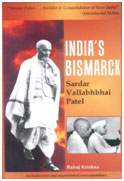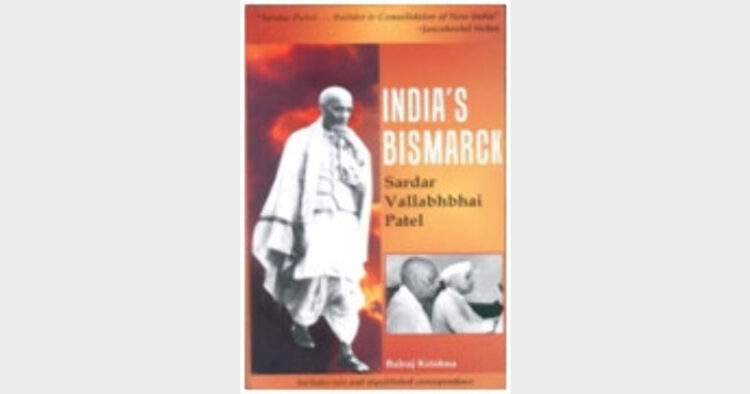 M.J. Akbar has obviously been following these days my blogs relating to Sardar Patel. It is he who pointed out to me that the name of the British General heading the Indian Army in 1947 had been misspelt. I added a footnote to the blog and had it corrected. In the context of Nehru’s differences with Sardar Patel, he has commended to me an excellent book by Balraj Krishna, titled India’s Bismarck, Sardar Vallabhbhai Patel. The book is sponsored by Sardar Patel Trust, Karamsad. Karamsad is the birth place of Sardar Patel.
M.J. Akbar has obviously been following these days my blogs relating to Sardar Patel. It is he who pointed out to me that the name of the British General heading the Indian Army in 1947 had been misspelt. I added a footnote to the blog and had it corrected. In the context of Nehru’s differences with Sardar Patel, he has commended to me an excellent book by Balraj Krishna, titled India’s Bismarck, Sardar Vallabhbhai Patel. The book is sponsored by Sardar Patel Trust, Karamsad. Karamsad is the birth place of Sardar Patel.
In today’s blog I propose to quote just one excerpt from this book which not only confirmed that Sardar Patel walked out of the Cabinet Committee meeting when harsh words were used against him, but also indicates that shortly thereafter, V.P. Menon also left the meeting.
The book records:
“In a democratic set-up, cabinet sanction was essential for Police Action. Patel faced a formidable task in overcoming Nehru’s reluctance. At one of the meetings of the defence committee, of which Nehru was the chairman, there was so much bitterness that Sardar Patel walked out. “Seeing his seat vacant,” V.P. Menon told a Rotary meeting in Bombay, “I too walked out five minutes later.” This seemed to have shaken Nehru out of his complacent mood, and mellowed his opposition. Later, at a meeting attended by the governor general (Rajagopalachari), the prime minister, the home minister (Patel), and secretary to the states ministry (Menon), “it was decided to order troops into Hyderabad”.
Patel had yet to face the Hamlet in Nehru. The British commander-in-chief of the Indian Army, General Roy Bucher, persuaded Nehru that “even at that late stage the campaign should be called off as militarily risky, and hazardous on grounds of internal security in the whole country”. About midnight on 12 September, after he had spoken to Nehru, Bucher attempted “a rare feat” in pulling Patel “out of bed at that hour” and advised him to at least postpone action for fear of air attacks on Bombay and Ahmedabad. Patel reminded Bucher “how London had suffered during the Great War, and coolly assured him that Ahmedabad and Bombay both could stand up to an attack if it came”.













Comments